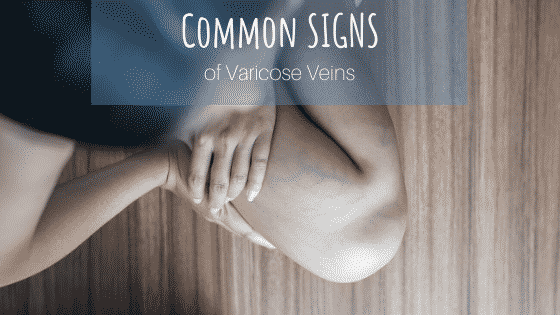Common Signs of Varicose Veins
Aching and swollen legs, and twisted veins can be uncomfortable precursors to varicose veins. These occur when vein valves are weakened or damaged. The weakened valves prevent blood from efficiently returning to the heart, causing blood to accumulate in the vein, and resulting in its enlargement. Although this process can affect all veins, varicose veins specifically refer to the larger veins.
For some, varicose veins are simply a cosmetic issue, but in others, this is a sign of more serious medical conditions.
Early Evidence of Varicose Veins
Before varicose veins are visible, you may experience a number of early warning signs, including light red spots on the lower legs, twisted or bulging veins, dull aching, swollen feet after standing for long periods, and thickened or hardened skin.
After varicose veins develop, people may experience any of the following:
- Leg swelling or the feeling heaviness
- Aching or worsening pain after sitting or standing for long periods
- Itching around the veins
- Burning, throbbing or cramping
- Numbness
People with varicose veins may also experience:
Spider Veins
Spider veins, a similar condition, but one affecting smaller veins and sometimes occurring on the face, might be an indication of varicose veins.
Restless Legs Syndrome
Also known as Willis Ekbom Disease, RLS is commonly known to be a neurologic sleep disorder, but studies show 22% of people with it suffer from venous insufficiency.
Skin Discoloration in Lower Extremities
This result of the progressive stages of venous reflux, where blood flows backwards, pools within the vein and causes it to expand and dilate.
Sores, Healed and Unhealed
There is a chance that varicose veins can lead to venous ulcers, where blood backflow causes pressure at the end of the limbs. This weakens skin and affects its ability to heal from cuts or scars.
Risk Factors
There are certain risk factors that can cause patients to be predisposed to varicose veins. If you find yourself in any of these categories, you might be at an increased risk of developing varicose veins:
- Pregnant Women
- People over 50
- People who are overweight or obese
- People with a family history of varicose veins
- Diabetics
- People with prior leg injuries
Dealing with your Varicose Veins
Like DVT, varicose veins are manageable with healthy lifestyle choices and exercise. If you’re suffering from the condition or think you might be, Summit Skin & Vein Care’s skilled staff is here to help assess and support you. Schedule your appointment today and we’ll go over further risk factors, potential complications, treatments, and devise a plan to get you back to good health.
